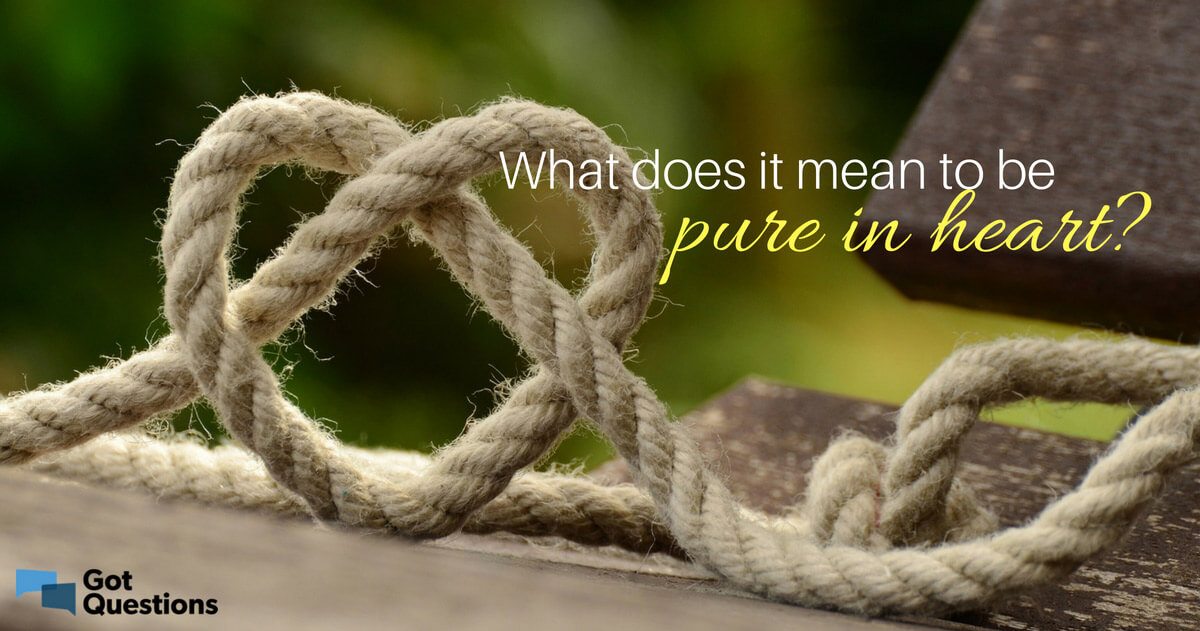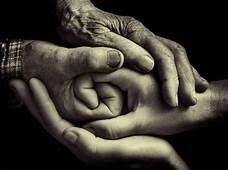Lenten Devotional – MONDAY, Mar 15: PURE
Pure. This word is full of virtue, isn’t it? It suggests something that is untainted, untouched, or in archaic terms, virginal. In some contexts, it means something cleansed, sanctified, and set apart.
Can you take your heart — metaphorically — out of your chest, divided from the whole of yourself? Separate it from body, mind, and spirit? Wall it off? Keep it away from the world and focus it only on holy thoughts? No. Your heart is integral to the fullness of your being.
And yet, pure can means a singular focus on Godself: feeling, thinking, and choosing with a whole and holy heart. One commentary described such people as those who are ‘… single-minded … who seek the kingdom as the summum bonum with undivided heart.’ And Søren Kierkegaard wrote, ‘purity of heart is to will one thing.’
Arguably, the point of the Beatitudes is not about achieving or aspiring to perfection; it is about mindfulness and intention. It involves interior motivations and attentiveness.
After all, as we’ve already discussed during Lent, who among us ever achieves perfection? Actually, there’s a good reason for the wisdom saying that ‘perfection is the enemy of good.’ When we aim to be perfect, we become so paralyzed and our goal so unattainable, that we may experience the law of diminishing returns. If we try to be perfedct, we may never attempt anything or take any risks or ever complete any thought or work or deed. Thus, let’s put aside the idea of ‘pure of heart’ as being perfect.
The Beatitudes aren’t generally about separating ourselves from everything around us. Rather, they’re aimed at living here and now, in this world, in these times, deeply engaged in the reality wherein we find ourselves.
What, then, does it mean to be single-minded and whole-hearted for God within this world? It certainly means that we don’t live as if we’re set apart. Rather we live in this world, believing that Godself is active and tangible and revealed all around us, in each other, and inside ourselves.
Since pure, here, is spiritual and focused within our hearts and minds, let’s call it a state of being. The contemporary language of The Message uses this idea, ‘You’re blessed when you get your inside world—your mind and heart—put right. Then you can see God in the outside world.’
Let’s pick up the idea of perception. The Message says that if your inner perception is attuned, it will help you see God everywhere else, too. Another commentary by Ellicott suggests that ‘“purity of heart,” so far as it exists, brings with it the power of seeing more than others see in all through which God reveals Himself—the beauty of nature, the inward light, the moral order of the world, the written word, the life and teaching of Christ.’
Theologian Whitley Strieber paraphrases this Beatitude as, ‘Blessed are those who do not hate, for God shall be their companion.’ Thus we can also consider ‘pure’ single-mindedness and whole-heartedness to be focused on healthy ways of seeking and expressing love. God’s agape love as the ultimate example of what love can mean for us.
Love in its healthy, holy and pure condition seeks sustainable and positive emotional, psychological, and spiritual choices, in every possible circumstance. Chooses to turn from hate, however difficult that may be. Opts for compassion and friendship and affection and healthy passions. Strives for enlightenment. Follows the Way of Christ.
Can you recognize yourself as pure, if you think about yourself being single-minded or whole-hearted? — Rev Gail
MEDITATIONS:
There is nothing more pure and beautiful than a person who always speaks truthfully with a childlike heart. ― Suzy Kassem
A pure heart is nothing more than being real with God, and not pretending to honor and adore Him. Will you do this? Give God praise freely? ― Shelena Griffiths
We are not sent into this world mainly to enjoy the loveliness therein, nor to sit us down in passive ease; no, we were sent here for action. The soul that seeks to do the will of God with a pure heart, fervently, does not yield to the lethargy of ease. — Dorothea Dix
Great thoughts and a pure heart, that is what we should ask from God. — Johann Wolfgang von Goethe
Challenge or Question: What captures your attention? When can you say you have been single-minded or whole-hearted? Do these interests and passions lead you closer or further from connection to holy love?
Mar 14 Worship: Lenten Sunday – Beatitudes
Lenten Devotional – Week 4
Matthew 5: 7-8
“Blessed are the pure in heart, for they will see God.”
“Blessed are the peacemakers, for they will be called children of God. ”
SUNDAY, Mar 14: BLESSED
Some translators use the word ‘happiness’ as another meaning for ‘blessed.’ As if the blessing confers a state of happiness upon those who have been named.
Yet in the upside-down world of the Beatitudes, often those who are named as blessed are also those grappling with complex personal and societal challenges. They’re living in or addressing poverty. They’re naming weaknesses and faults and vulnerabilities. They’re facing injustice and oppression. They’re living in times of lack and inequality. Happiness would seem a far-off state of being.
In this week’s Beatitudes, the blessing falls on those who are pure of heart and those who choose peace. These are not people basking in contentment and easy living. These are people who are walking the Way in the midst of extremes. They’re choosing love over hate. They’re choosing a path of resistance and nonviolent revolution. They’re addressing personal problems and societal wrongs.
‘They’ is also ‘us.’ Remember, we’re often the folk who strive for such values. We want to live by these ideals of purity and peace-making. At our best, we act and speak in support of these characteristics.
Yet we know that we often don’t feel pure. Or peaceful. Or happy.
We fall short. Our hearts fall short. The world falls short. Rather than feeling happy, we’re disappointed. Frustrated. Angry. Afraid.
Perhaps it’s more helpful to use the word ‘joy’ rather than ‘happiness’ as the promise of ‘blessedness’. Happiness is like weather: fleeting and seasonal. Always-changing. Joy is the sky: deep and eternal, unaffected by the winds and rains, because it springs from a deeper, higher place. How else do we explain accessing humor, peace, hope, and joy in the hardest, most life-threatening times? Abiding joy is there: growing, rising, connecting us to the sacred love of God.
Yet in our daily living, we’re more aware of the weather than the sky behind it. We feel the immediate effects of emotions and circumstances, and question the blessing.
We’re susceptible to changing conditions. Being blessed — or happy — may not seem like a tangible, deliverable, real promise. A state of being available to us, here and now. Most of the time, we’ll struggle to imagine how the conditions named in the Beatitudes can lead to a blessing.
After all, we fall short of deserving such gifts. How can they possibly be true? That’s the beauty of the Beatitudes. Instead of asking us to be perfect, the Beatitudes bless us as we are: bundles of hope, desire, and aspiration. We’re full of potential, but we’re definitely not idealized versions of humanity.
The One who blesses us, also recognizes the value of our hunger. Our yearning. Our motivation. Our turning toward God. Our almost-honesty. Our love-seeking selves. Our desire to do what’s right. Our longing for peace.
By now, the Beatitudes have modeled for us, over and over, that we’re usually in a position to need more than we can give. We’re broken open. It’s that vulnerability that permits us to receive what is offered.
We are enough, just as we are. Beloved. Chosen. Claimed. Adopted. Welcomed. Wanted. As humans, we may reflect each of these Beatitudinal conditions and characteristics at different times in our lives. God will work through us, imperfect as we are, if we simply receive the blessing of love being poured out for us. — Rev Gail
MEDITATIONS:
Blessed is the influence of one true, loving human soul on another. — George Eliot
I’m blessed and I thank God for every day for everything that happens for me. — Lil Wayne
Blessed are those who give without remembering and take without forgetting. — Elizabeth Bibesco
Life is filled with tragedy, with long patches of struggle and with, I think, beautiful bursts of joy and accomplishment. Blessed with those moments, you just try to relax as much as possible and focus on the little things, like the joy of changing your baby’s diaper. — David Dastmalchian
Challenge or Question: Identify a blessing within your life. One aspect of your life for which you are grateful. Give thanks for it. Say a prayer, write it in a journal, or light a candle to acknowledge this blessing.
Lenten Devotion – Sat, Mar 13: MERCY
Reciprocity is once more at the heart of this blessing. We are the people who have witnessed and responded to others’ pain, hurt, and suffering. In turn, we are the ones who need — and hopefully receive — compassion and kindness.
It’s easier to be on the giving end of this blessing, than on the receiving end. It’s difficult to accept gifts of kindness, mercy, compassion, and forgiveness. After all, that puts us in the position of being vulnerable. Needing someone or something else. We don’t easily admit to being in such a position; our culture valorizes being strong and independent and coping alone, without asking for help.
These Beatitudes remind us that we’re quite human. Not nearly the towers of strength we try to be.
Remember, God is blessing a human society and our human condition. The Beatitude acknowledges that we suffer and serve each other imperfectly.
We already know that we fall short of showing mercy at all times. We simply embody it, as best we’re able, in our daily living. Along the way, we’ll hurt someone’s feelings or overlook someone’s suffering. We may fail to act when we might have alleviated trauma or advocated to mitigate injustice.
Yet the blessing, and the promise, is that we’ll keep trying. We’ll strive to do the next right thing.
In our mortal lifespan, we’ll certainly experience pain and loss ourselves. We’ll need help, support, kindness, compassion, justice and forgiveness. Often we’ll receive what is needed. Sometimes it will arrive in surprising forms and resources, or show up on a schedule other than the one we consider to be ideal.
Yet we know, because we’ve all been disappointed, that sometimes what we need doesn’t come. Not in time. What happens if we ask for help, and don’t receive it? Does that mean we’re not among the blessed?
In fact, just the opposite. The blessing remains true. In our need, we reclaim the power to offer compassion and mercy to others who apparently also need it. Sometimes that involves those who hurt and fail us. Thus, when we’re in need of kindness and compassion, and it doesn’t come to us, we may find ourselves once more in the role of giving compassion to those who ought to have extended it to us.
Please note that all of these aspirations: peace, forgiveness, and justice, are processes. They unfold over time. They may recur in cycles. And they should be done with care to mitigate self-harm. We may have to revisit them over and over, and do the work, again, to both offer them and to accept them into our lives.
Along the way, we cannot fix everything that is wrong in the world. Nor can another person address all the issues that may arise in our own lives. Yet we can support each other. We can look, with renewed clarity, and recognize the holy presence of God showing up as our family, friends or neighbors … or sometimes strangers … just when we needed tender and tenacious care. — Rev Gail
MEDITATIONS:
The power of just mercy is that it belongs to the undeserving. It’s when mercy is least expected that it’s most potent—strong enough to break the cycle of victimization and victimhood, retribution and suffering. It has the power to heal the psychic harm and injuries that lead to aggression and violence, abuse of power, mass incarceration. ― Bryan Stevenson
The beatitude suggests that we know mercy because we have been given it. And we have been given mercy because we need it. — Martha Stortz
There is a very deep connection, emphasized in scripture, between one’s relationship with God and one’s relationship with others. Closing one’s heart to a brother means automatically closing one’s heart to God and his grace, while opening one’s heart to another ss a sure way of opening one’s heart to God and his abundant blessings. — Jacques Philippe
Challenge or Question: Identify a time when you had to ask for help. What was that like? What did you learn about yourself? How did it change your ability to request and receive compassion and supportive care from others going forward?
Lenten Devotional – Fri, May 12: MERCIFUL
Now the Beatitudes take a turn. Who are the merciful? They would seem to have some power. Some agency. Some choice.
What is mercy anyway? John Stott says, ‘Mercy is compassion for people in need.’ Another scholar substituted the word kind in lieu of merciful. The Message’s contemporary wording of the Gospel reframes this Beatitude as ‘You’re blessed when you care. At the moment of being ‘care-full,’ you find yourselves cared for.’
The Barnes commentary says those who receive this Beatitude are, ‘those who are so affected by the sufferings of others as to be disposed to alleviate them.’ Jacques Philippe expands these ideas. He writes, ‘The fifth Beatitude concerns all aspects of mercy, of course, not just forgiveness. It applies to those forms of the goodness, love, benevolence, patience and mutual support to which the New Testament so often summons us.’
Are we self-less in our mercy and caring? It’s okay to feel good about caring. As humans, we’re less likely to act solely for idealistic purposes. It helps when we’re rewarded by feeling good about what we’re doing.
That experience of satisfaction — of gaining a sense of purpose — plants the seed to continue in such a direction. Martha Stortz explains it this way, ‘So often love begins in narcissism: the heart turns in on itself. But over time grace straightens your tightly coiled affection so that it reaches beyond the self to another and then through the other to God, the source and spirit of all loving.’
Of course, it is also essential, over time, for our small acts of mercy to be separated from any expectation of appreciation or acknowledgement from the one who receives our kindness. Not all people on the receiving-end of kindness and compassion are able or willing to accept it or give thanks for it. Being merciful, in conditions where people are unable to reciprocate, or even acknowledge the efforts we make, can be exhausting. Ask any care provider in difficult settings such as homeless shelters, mental health units, nursing homes, and other such places.
At such times, we must lean on the ethical choice we’ve made, and find our strength and resilience outside the compassionate exchange. For Christians, this comes from leaning on Godself. Jacques Philippe says, ‘Thus, to be free and happy, we must have the courage to tell ourselves “No one owes me anything.” Not those who harmed me, because I’ve forgiven them, and not those to whom I’ve done good, because I want to love them freely.’
This cultivation of resilience, of being able to offer mercy even when none can be returned to you, mirrors the blessing itself. We have been given this blessing, without any way to earn it or deserve it. It is given out of a deep and holy love.
Our first choice is to open ourselves to this blessing. Accept it as the gift it is. We didn’t ask for it. We didn’t expect it. Some of us may continue to think we don’t deserve it. By now, during Lent, hopefully you’ve been honest enough with yourself to realize that each of us — you and me — urgently needs mercy. Here it is, being offered. — Rev Gail
MEDITATIONS:
There is a strength, a power even, in understanding brokenness, because embracing our brokenness creates a need and desire for mercy, and perhaps a corresponding need to show mercy. When you experience mercy, you learn things that are hard to learn otherwise. You see things you can’t otherwise see; you hear things you can’t otherwise hear. You begin to recognize the humanity that resides in each of us. ― Bryan Stevenson
A rabbi should not despair if people do not do as much as they should. Every parent has that with children. God is merciful. — Louis Finkelstein
Every merciful act to the needy, the suffering, is as though done to Jesus. — Ellen G. White
Mercy manifests itself as forgiveness, and forgiveness is the glue of human community. — Martha Stortz
He was so benevolent, so merciful a man that, in his mistaken passion, he would have held an umbrella over a duck in a shower of rain. — Douglas William Jerrold
One isn’t necessarily born with courage, but one is born with potential. Without courage, we cannot practice any other virtue with consistency. We can’t be kind, true, merciful, generous, or honest. — Maya Angelou
Challenge or Question: When do you experience opportunities for daily acts of kindness or compassion? Pay attention to chances to extend this grace to others throughout this season, so that it becomes a habit. If you’re living remotely, can you find ways to show compassion anyway, through different forms of communication?



